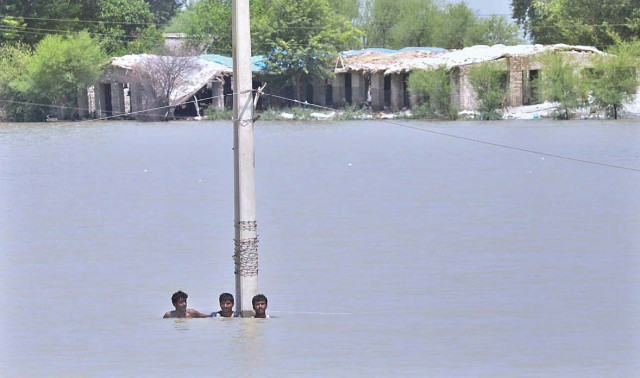Floods and food
The lifeline offered to Pakistan’s flood victims through WFP food distribution programmes has been severed.

Floods and food
Indeed, especially from Sindh, where the floods have led to a greater assessments of social realities and more interest from international agencies, there is evidence that people had been in acute need of food even before the flood. A Sindh government survey, supported by Unicef, has found high levels of malnutrition among children and women. Experts engaged in relief work in the province believe this is the result of years of poverty and deprivation, rather than of the flood alone.
Groups in the country have also pointed out that official policies with regard to flood victims have been deeply flawed. The delays in repairing infrastructure, lack of transparency in the distribution of aid and issues with the handing out of compensation to those whose homes have been damaged rank among the issues listed. While factors such as the global recession have played a role in funding constraints, it is conceivable that perceptions about Pakistan’s ability to deal with crises or ensure accountability have contributed to this — and these are matters we need to give serious thought to as we ponder our ability to deal with fresh catastrophe in the future.
Published in The Express Tribune, February 21st, 2011.














COMMENTS
Comments are moderated and generally will be posted if they are on-topic and not abusive.
For more information, please see our Comments FAQ